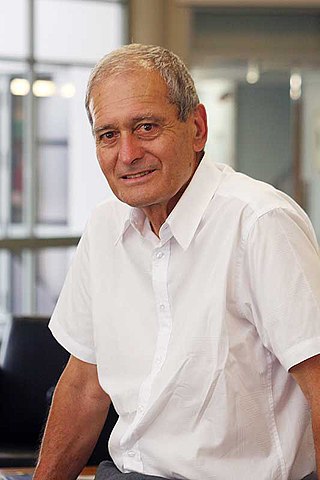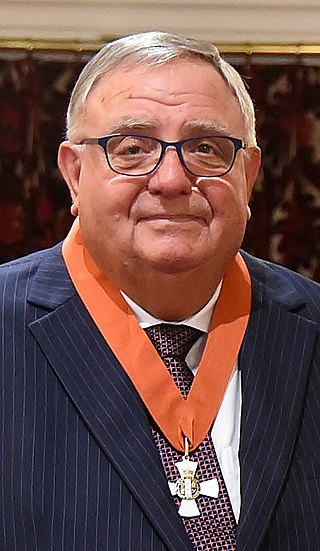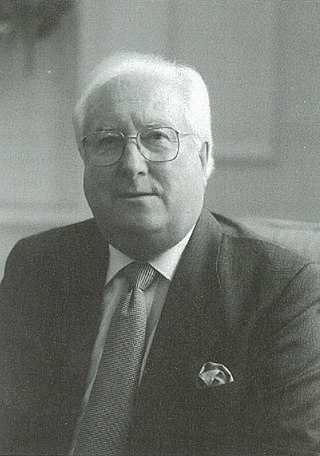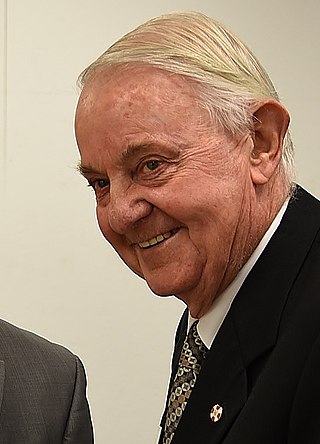
Dame Silvia Rose Cartwright is a New Zealand jurist who served as the 18th Governor-General of New Zealand, from 2001 to 2006. She was the second woman to hold the office, after Dame Catherine Tizard.

Dame Sian Seerpoohi Elias is a New Zealand former Government official, who served as the 12th chief justice of New Zealand, and was therefore the most senior member of the country's judiciary. She was the presiding judge of the Supreme Court of New Zealand and on several occasions acted as administrator of the Government.

Sir David Stuart Beattie, was an Australian-born New Zealand judge who served as the 14th governor-general of New Zealand, from 1980 to 1985. During the 1984 constitutional crisis, Beattie was nearly forced to dismiss the sitting prime minister, Robert Muldoon.
Sir Edmund Walter Thomas, widely known as Ted Thomas, is a New Zealand jurist. He is a retired judge of the Court of Appeal of New Zealand and a former acting judge of the Supreme Court of New Zealand.
Sir William David Baragwanath is a New Zealand lawyer and jurist. He served as president of the United Nations Special Tribunal for Lebanon between 2011 and 2015.

Sir James Bruce Robertson, generally known as Bruce Robertson, is a retired judge of the Court of Appeal of New Zealand, where he was appointed in May 2005.
Sir Noel Crossley Anderson was a New Zealand judge who was President of the Court of Appeal of New Zealand from 2004 to 2006, before being elevated to the Supreme Court. He left office in 2008.

Sir Mason Harold Durie is a New Zealand professor of Māori Studies and research academic at Massey University. He is known for his contributions to Māori health. In 2020, he was appointed to the Order of New Zealand, the highest honour in New Zealand's royal honours system.

Peter Kerry Clark is New Zealand lawn bowls player and administrator.

Sir Edward Taihakurei Durie was the first Māori appointed as a judge of a New Zealand court. He is of Rangitāne, Ngāti Kauwhata and Ngāti Raukawa descent; Mason Durie (1889–1971) was his grandfather.

Sir Patrick Ledger Goodman, known as Pat Goodman or Sir Pat Goodman, was a prominent New Zealand businessman, arts patron and philanthropist. Along with his brother, Peter, he co-founded the Australasian food giant Goodman Fielder. He was CEO and chairman of the company.

Michael John Albert Brown, commonly known as Mick Brown, was a New Zealand judge. In 1980, he became the first Māori to be appointed as a District Court judge, and he was later the first principal Youth Court judge.
Neville Garde Austen Young was a New Zealand lawyer. He served as president of the National Party from 1986 to 1989.
Thomas George Goddard was a New Zealand jurist. He served as chief judge of the Employment Court of New Zealand from 1989 to 2005.

Peter John Cartwright was a New Zealand lawyer and, as the husband of Dame Silvia Cartwright, viceregal consort of New Zealand between 2001 and 2006.

Sir Robert Bartlett Elliott was a New Zealand medical researcher.
Sir David Lance Tompkins was a New Zealand lawyer and jurist. He served as a judge of the High Court of New Zealand from 1983 to 1997 and on the benches of the Courts of Appeal of Tonga and Fiji. He was chancellor of the University of Waikato between 1981 and 1985.

Sir Alan Russell Frampton is a New Zealand agricultural economist. He completed a master's degree at Massey University in 1964. He had a career as an academic at Massey University from 1968 to 1983, before working as a consultant. He was a member of the New Zealand Dairy Board from 1973 to 1993, and was chair of the Tatua Dairy Company from 1990 to 2003.

Dame Alison Mae Paterson is a New Zealand businesswoman. In 1979, she became the first woman to sit on the board of a publicly listed company in New Zealand.
Patrick Desmond Mahony is a former New Zealand judge. He served as principal judge of the Family Court from 1985 to 2004.













